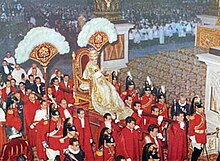“The Lord was very angry with your fathers. Therefore say to them, Thus declares the Lord of hosts: Return to Me, says the Lord of hosts, and I will return to you, says the Lord of hosts. Do not be like your fathers, to whom the former prophets cried out, ‘Thus says the Lord of hosts, Return from your evil ways and from your evil deeds.’ But they did not hear or pay attention to Me, declares the Lord. Your fathers, where are they? And the prophets, do they live forever? But My words and My statutes, which I commanded My servants the prophets, did they not overtake your fathers? So they repented and said, As the Lord of hosts purposed to deal with us for our ways and deeds, so has He dealt with us.” The word of the Lord came to the prophet Zechariah, the son of Berechiah, son of Iddo, saying, “I saw in the night, and behold, a man riding on a red horse! He was standing among the myrtle trees in the glen, and behind him were red, sorrel, and white horses. Then I said, ‘What are these, my lord?’ The angel who talked with me said to me, ‘I will show you what they are.’ So the man who was standing among the myrtle trees answered, ‘These are they whom the Lord has sent to patrol the earth.’ And they answered the angel of the Lord who was standing among the myrtle trees, and said, ‘We have patrolled the earth, and behold, all the earth remains at rest.’ Then the angel of the Lord said, ‘O Lord of hosts, how long will You have no mercy on Jerusalem and the cities of Judah, against which You have been angry these seventy years?’ And the Lord answered gracious and comforting words to the angel who talked with me. So the angel who talked with me said to me, ‘Cry out, Thus says the Lord of hosts: I am exceedingly jealous for Jerusalem and for Zion. And I am exceedingly angry with the nations that are at ease; for while I was angry but a little, they furthered the disaster. Therefore, thus says the Lord, I have returned to Jerusalem with mercy; My house shall be built in it, declares the Lord of hosts, and the measuring line shall be stretched out over Jerusalem. Cry out again, Thus says the Lord of hosts: My cities shall again overflow with prosperity, and the Lord will again comfort Zion and again choose Jerusalem.’”
- Zechariah 1:2-17
One of the errors which has been perpetrated down through history is that the mediatorial office of Christ began at His ascension. After all, wasn't His mediatorial work based on His crucifixion and resurrection? And, of course, it was. However, I believe that the Scriptures teach that the Second Person of the Trinity was active in mediating between God, i.e., the First Person, and His people throughout history, including the Old Testament dispensation, looking forward to His mediatorial sacrifice. This is the basis of His priestly office.
We see that work here in Zechariah 1. The section begins with a record of God's judgments on Israel for her idolatry, See especially verse 6. Then the Angel of the Lord appears in verse 8 (revealed as such in verse 11).
I agree with the traditional understanding that the Angel of the Lord (specifically, not angels in general) is the pre-incarnate Second Person of the Trinity, due to the interchange of His identity with that of the Lord in various parts of the historical portions of the Old Testament. See, for example, Genesis 16:7-11, compared with verse 13. The Angel of the Lord is described distinctly, yet identified with Jehovah, a classical representation of these two Persons of the Trinity.
Now, back in Zechariah 1, we see the Angel speaking up for the remnants of Judah. In verse 12, He asks, "O Lord of hosts, how long will You have no mercy on Jerusalem and the cities of Judah, against which You have been angry these seventy years?" And immediately we see a change in the countenance of Jehovah. Where we saw His wrath, as described above, now contrariwise in verse 13 we read, "and the Lord answered gracious and comforting words to the angel who talked with me." From wrath to grace and comfort, merely in response to the Mediator's interposition.
For us, we should find much comfort here. We see the covenantal faithfulness of Christ, revealed even centuries before He was born in the manger. And we see the righteous wrath of God, which we have every reason to fear, turned aside by our theanthropic Mediator. What peace that should be to each of His people! And for those who hold erroneous views of the person of Christ, such as Jehovah's Witnesses, the Word witnesses against you, and you cannot hope in the mediatorial work of that Christ Whom you malign!
Sedulius Paschal Work, Book 2
1 hour ago






